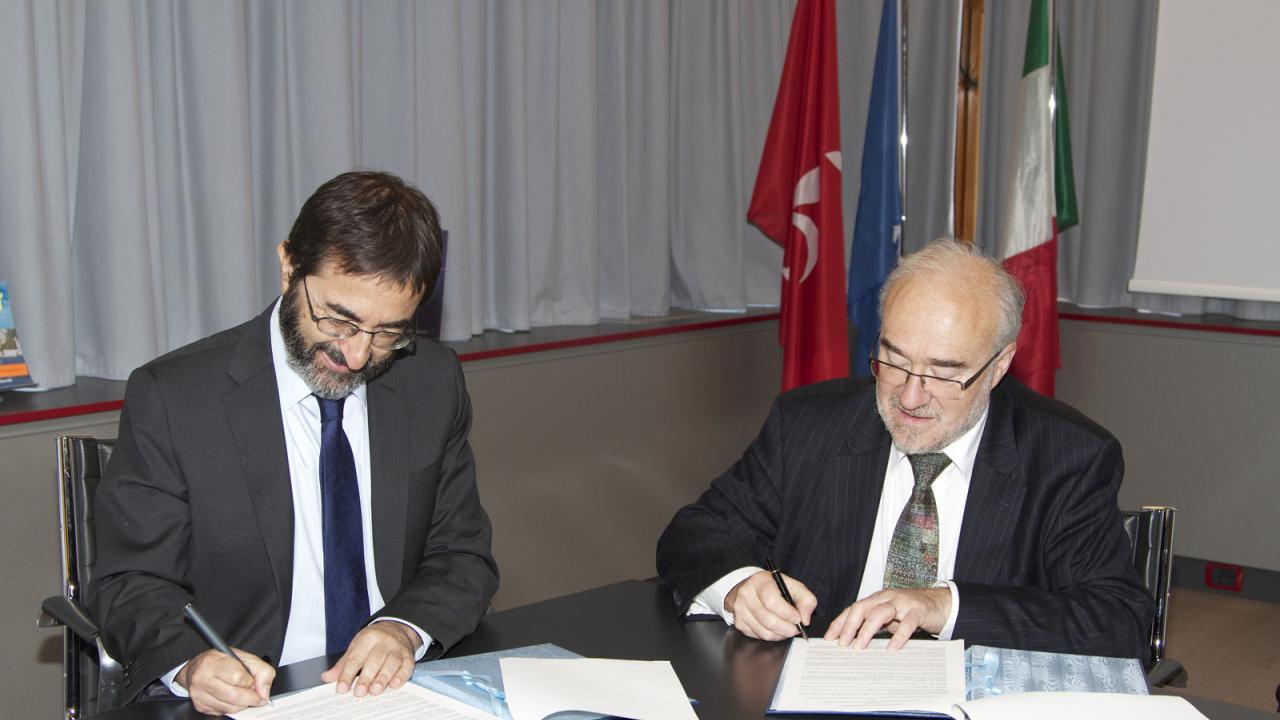
ICTP is partnering with the World Meteorological Organization (WMO), the main international body dealing with weather and climate research and applications, to address some of the most challenging problems related to weather and climate. Researchers from ICTP's Earth System Physics (ESP) section work on understanding different facets of weather and climate physics, with a special focus on developing countries. The memorandum of understanding (MoU), which was signed by ICTP Director Fernando Quevedo and WMO secretary General Michel Jarraud on 7 October during ICTP's 50th Anniversary celebrations, will allow the two organisations to build better co-operation and knowledge exchange and dissemination strategies.
Jarraud, who opened the October 7 anniversary talks at ICTP with a discussion on The Future Earth, had called for a "global framework for climate services" to present better packages of scientific information to politicians. The idea of this global framework is to focus on the expertise of centres like ICTP that have the ability to build capacity in developing countries. In his talk, Jarraud stressed the importance of translating scientific progress into concrete products for decision makers. And, the ICTP-WMO MoU is a step in that direction.
"The WMO organizes a wide range of international programmes, for example the Global Framework for Climate Services, and from our perspective this MoU is an important means by which the network of scientists associated with us can be exposed to and be involved in such major international efforts," says head of ESP Filippo Giorgi, who is also the ICTP representative to coordinate relations between the two organisations. "From the WMO perspective, the involvement of ICTP will facilitate the participation of the scientific community from developing countries. So in many ways the two organizations share a common goal, which can lead to strong synergies," he adds.
Giorgi points out that developing countries are the most dependent on and vulnerable to weather and climate changes, and these are exactly the countries that will benefit from the ICTP-WMO partnership. "The interactions envisioned by this MoU can take several forms: training courses, seminars, workshops, scientific studies, research projects, and dissemination activities, all of which will help scientists from developing countries," says Giorgi. "Eventually, the WMO umbrella will considerably enhance the visibility of any activity that we might be jointly involved in," he adds.
The session on The Future Earth, which Jarraud opened, is available on ICTP's YouTube channel.
















